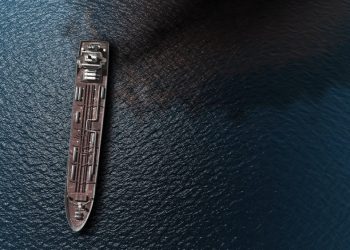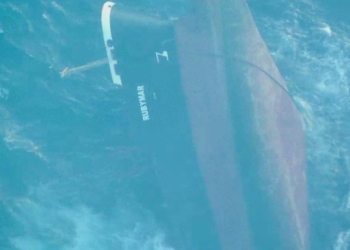Danish oil recovery solution manufacturer DESMI has obtained Nautical Institute accreditation for its IMO Oil Pollution Preparedness and Response (OPRC) training courses. The accreditation, received in March this year, allows operators to obtain fully compliant training directly from the manufacturer.
Contrary to what many people think, large spills do not occur that often. Being able to tap into equipment knowledge and response experience gained at the ‘coal face’ provides a unique opportunity for training participants to learn from the experiences of others without encountering the pitfalls.
“Nothing’s quite as informative or as memorable as having someone share real life experiences about what responding to an oil spill is really like – working to contain the 2010 Gulf of Mexico spill, for example,” says DESMI’s Wayne O’Brien, Vice President of Sales at the Danish-based company’s Asian-Pacific organisation. “And with something that is as important, as challenging and dynamic as a large oil spill, lessons learned in the classroom need to remain as sharp in participants’ minds as possible.”
The training programme covers many different needs. In accordance with the accreditation, courses are conducted for operational staff, supervisors and senior managers, respectively.
- Operational staff are instructed in understanding the weathering process of oil in the marine environment, how to select appropriate equipment, implement efficient and effective operations using different response strategies, and participate in oil spill response teams at the site.
- Course participants at supervisory levels learn to safely and efficiently respond to oil spills, undertake initial risk assessments and initiate a response to a spill. The training also covers how to identify priorities for protection, determine the correct response strategy, identify the limitations of response options and equipment, and understand the needs of the media.
- At the upper end of the scale, participants receive instruction on the complexities of oil spill management, learning to consider the political and media pressures, legal and financial implications, as well as issues of public and response personnel safety, and post-operational requirements.
“There are, of course, differences between equipment types, meaning it’s almost always best to train with the type of equipment your people will use,” explains Mr O’Brien. “Then there’s the know-how aspect. Situations can occur out there that simply aren’t covered in instruction manuals – and you may have to come up with creative solutions to a problem no one has ever encountered before. That’s when experience counts, and when the course instructor’s track record and expertise can make a real difference.”






























































